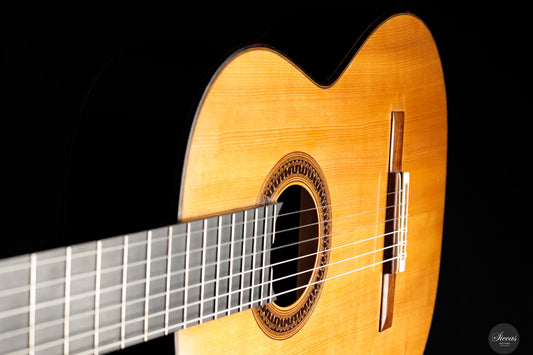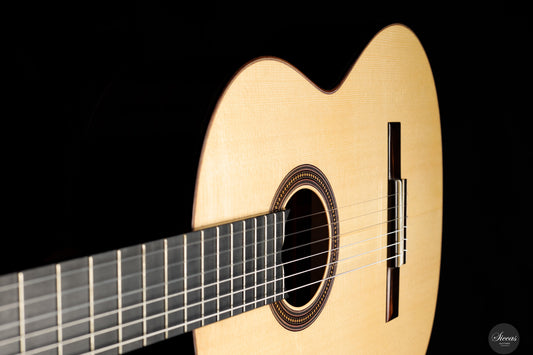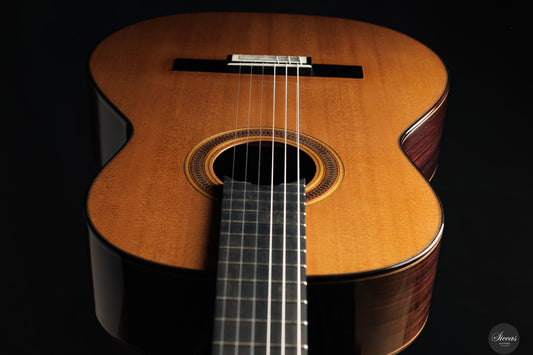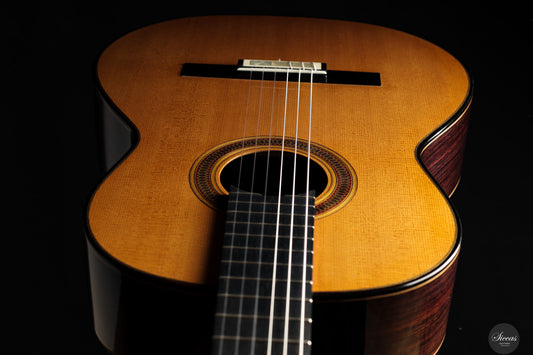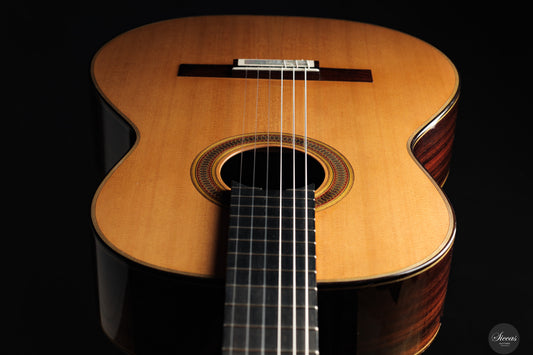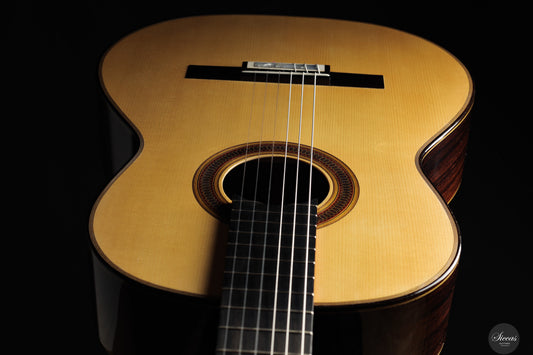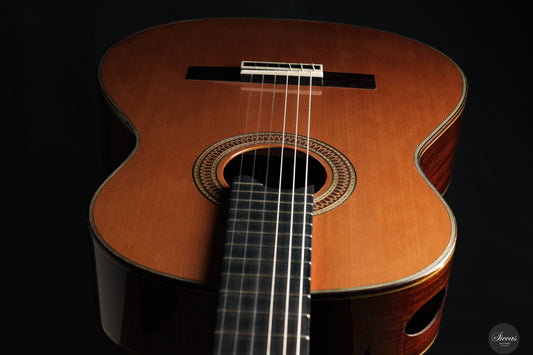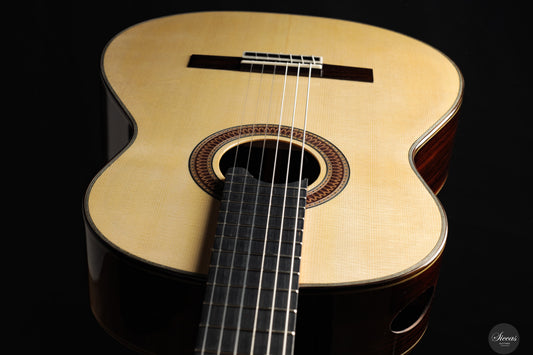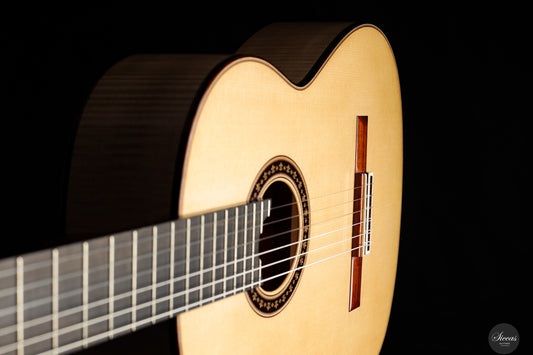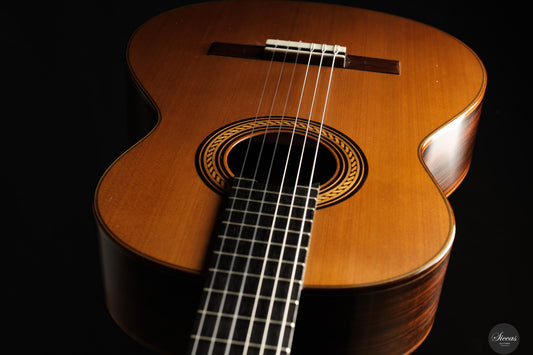Sold
Jochen Röthel - 2024
Jochen Röthel - 2024
Details
Details
Luthier:
Jochen Röthel
Overview
Overview



























Video overview
Some text about the video block with SEO. Some text about the video block with SEO.


More details about the guitar
About the luthier
Jochen Röthel, born in 1969 in Kitzingen, Bavaria, is a distinguished guitar maker whose path was shaped early on by his upbringing as the son of a cabinetmaker. His passion for the guitar led him to Lakewood Guitars in Giessen, where he trained under Martin Seeliger and formed a lasting connection with fellow luthier Michel Brück. A pivotal moment in his development came in 1992, when he attended a masterclass with José Luis Romanillos in Córdoba, deepening his focus on classical guitar building. After receiving his master’s degree in 1997, Jochen established his workshop in Oldenburg, Germany. His work is informed by extensive restoration experience and an in-depth study of historic instruments by figures such as Manuel Ramírez and Hermann Hauser. By combining traditional Spanish techniques with his own meticulous approach, Jochen Röthel has crafted a distinctive voice in contemporary lutherie—one characterized by clarity, warmth, and refined craftsmanship.About the guitar
This 2024 Jochen Röthel guitar exemplifies the high level of craftmanship Jochen has achieved. The level of workmanship invested in this instrument sets a high benchmark, with an attention to detail that is both rare and admirable. It boasts an elegant aesthetic that is nearly flawless, reflecting the sophisticated taste and skill of its maker. It features a cedar top and beautifully figured Indian rosewood back and sides, brought together with a lightweight build of just 1.370 grams. The bracing consists of five braces in a fan distribution, supported by a small bridge plate and two closing bars at the bottom. The guitar offers a strong, projecting voice with a vibrant, well-balanced tone and rich overtones that unfold with remarkable clarity. As with all of Röthel’s instruments, the materials are of outstanding quality, and the aesthetic is elegant yet understated. Fitted with high-end Rodgers tuners, this guitar is a superb example of Röthel’s meticulous approach to guitar making, materializing a compelling choice for discerning concert players.Condition
This guitar is in mint condition and shows subtle, minimal signs of wear.
Otto Rauch is a German guitar maker from the small town of Obermoschel in Rheinland-Pfalz. With over 35 years of experience as a guitar maker, he is one of the German pioneers of double-top construction. After repairing a Matthias Dammann guitar in the early 1990s, Otto Rauch began building doubel-top guitars. At first, he used cedar struts and then a balsa core, a construction he continued to develop over the years. While helping a friend set up his violin making business, Otto Rauch came across the name of the 18th century Venetian violin maker Domenico Montagnana. His cellos are praised for their dark tone, fantastic sound volume and enigmatic construction. As these three attributes reflect Otto’s construction, he adopted the name, and the Domenico Montagnana model was born.



























































